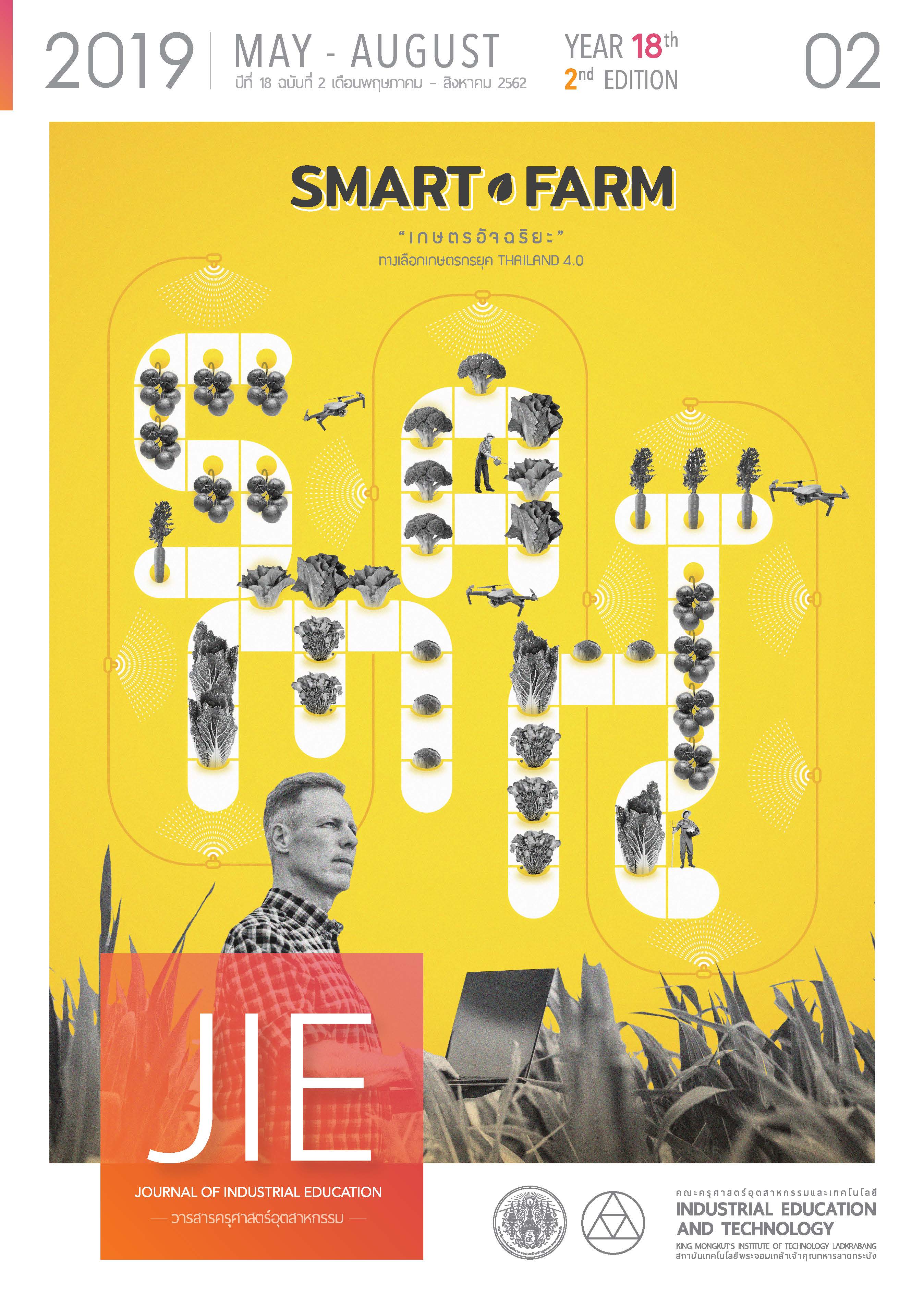A STUDY OF MATHAYOMSUKSA I STUDENTS’ LEARNING OUTCOME ON COMBINATORICS VIA CONSTRUCTIVIST TEACHING
Keywords:
constructivist teaching, Combinatorics, satisfactionAbstract
The purposes of this research were to study students’ learning outcomes on combinatorics after being taught via a learning management based on constructivism theory and also to investigate students’ satisfaction levels toward the learning management. The participants recruited by a cluster random sampling technique were 40 Mathayomsuksa I students from Senangkhanikhom school in Senangkhanikhom district, Amnat Charoen, in the second semester of the 2018 academic year. We designed a constructivist learning management including six instructional plans for the topic of combinatorics. Each plan was divided into two periods with 50 minutes for each. The subjects were taught combinatorics through the six plans. The pupils, as well, were assigned to take 3 exams of students’ learning outcomes on combinatorics, and they were asked to complete questionnaires of students’ satisfactions after studying combinatorics via our created learning management at the end. Students’ responses on the exams and questionnaires were graded and collected as the data of this study.
The research findings revealed as follows: 1) After being taught the topic of combinatorics via our constructivist learning management, over 60% of the participants satisfied the set criteria, at the statistically significant .05 level. 2) The mean score of the subjects’ satisfaction toward the learning management was at the “high” level, overall.
References
Smith, C. E. 2007. On students' conceptualizations of combinatorics: A multiple case study. University of Minnesota.
Somchai Prasitjutrakul. 1999. Discrete mathematics. 3rd. Bangkok: National Electronics Technology and Computer Center.
Sriraman, B. and English, L. D. 2004. Combinatorial Mathematics: Research into Practice. The Mathematics Teacher, 98(3), p. 182-191.
Schielack, J. F. 1991. Primary experiences in learning what (as well as how) to count. Discrete mathematics across the curriculum, K-12, p. 44-50.
Lee, P. Y. 2006. Teaching secondary school mathematics: A resource book. Singapore: McGraw-Hill.
Grailurk Phonpa. 2008. Mathematical Laboratory Activity Packages to Prevent the Misconceptions on “Permutations” of the First Year Vocational Certificate Students. Master’s Project, M.Ed. (Secondary Education). Bangkok: Graduate School, Srinakharinwirot University.
Clements, D. H. 1997. (Mis?) constructing constructivism. Teaching children mathematics, 4(4), p. 198.
Jonassen, D. H. 1991. Evaluating constructivistic learning. Educational technology, 31(9), p. 28-33.
Driscoll, M. P. 1994. Psychology of learning for instruction. Boston: Allyn and Bacon.
Tisana Kaemmanee. 2014. Teaching strategies to the efficient learning process. 18th ed. Bangkok: Chulalongkorn University Press.
Driver, R. and Bell, B. 1986. Students' thinking and the learning of science: A constructivist view. School science review, 67(240), p. 443-456.
Murphy, E. 1997. Constructivism: From Philosophy to Practice. 1st ed. Eric.
Surang Kowtrakul. 2010. Education of Psychology. Bangkok: Chulalongkorn University.
Lamai Kaewsawan. 2015. Effects of Learning Activities Based on Constructivist Approach to develop Achievement and Creative Thinking in Mathematics of Grade 6 Students. Master Thesis, M.Ed. (Research and Development on Human Potentials). Bangkok: Graduate School, Srinakharinwirot University.
Lappan, G., &Schram, P. W. 1989. Communication and reasoning: Critical dimensions of sense making in mathematics. In New Directions for Elementary School Mathematics. (pp. 14-30). Reston, Virginia: The Nation Council of Teachers of Mathematics.
Sunisa Pamad, et al. 2018. Effects of Constructivism Concept Learning Style to Mathematics Achievement on Indices of Mattayomsuksa 1 Students. Journal of Education Research, Srinakharinwirot University, 13(2), p. 184-193.
Nueangnit Chaonahi, et al. 2011. Developing Mathematics learning Activities Based on the Constructivist Theory Entitled “Fractions” for 6th Grade Education. Rajabhat Maha Sarakham University Journal, 5(1): January-April 2011, p. 163-174.
Powell, K. C., & Kalina, C. J. 2009. Cognitive and social constructivism: Developing tools for an effective classroom. Education, 130(2), p. 241-251.
Hemphill, S. S. 2011. Social constructivist learning, sense of community, and learner satisfaction in asynchronous courses. Capella University.
Downloads
Published
How to Cite
Issue
Section
License
"The opinions and contents including the words in papers are responsibility by the authors."
"ข้อคิดเห็น เนื้อหา รวมทั้งการใช้ภาษาในบทความถือเป็นความรับผิดชอบของผู้เขียน"



